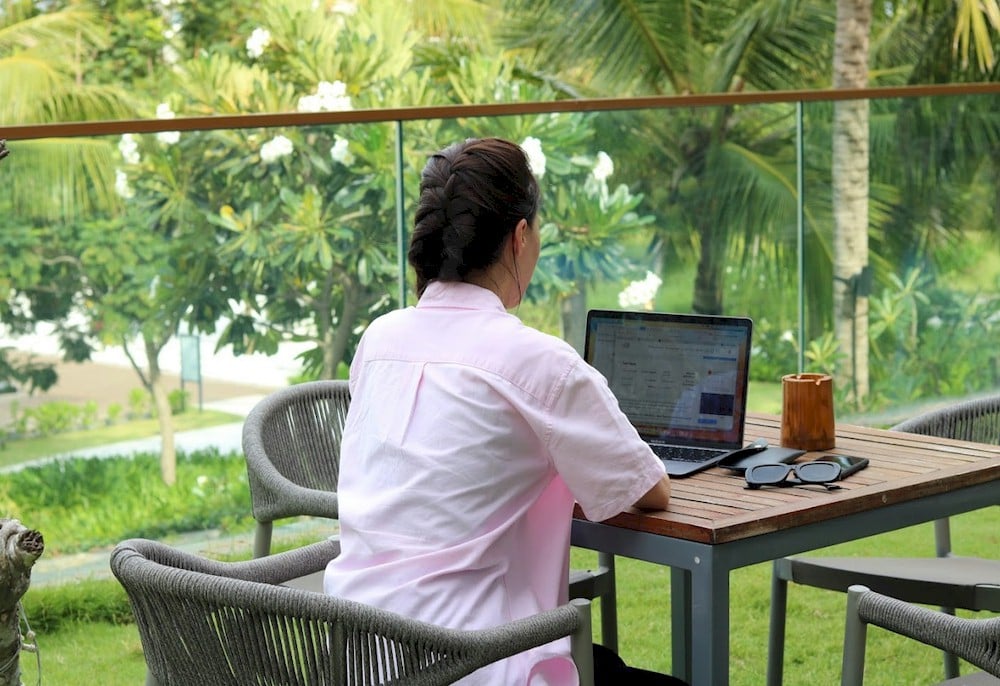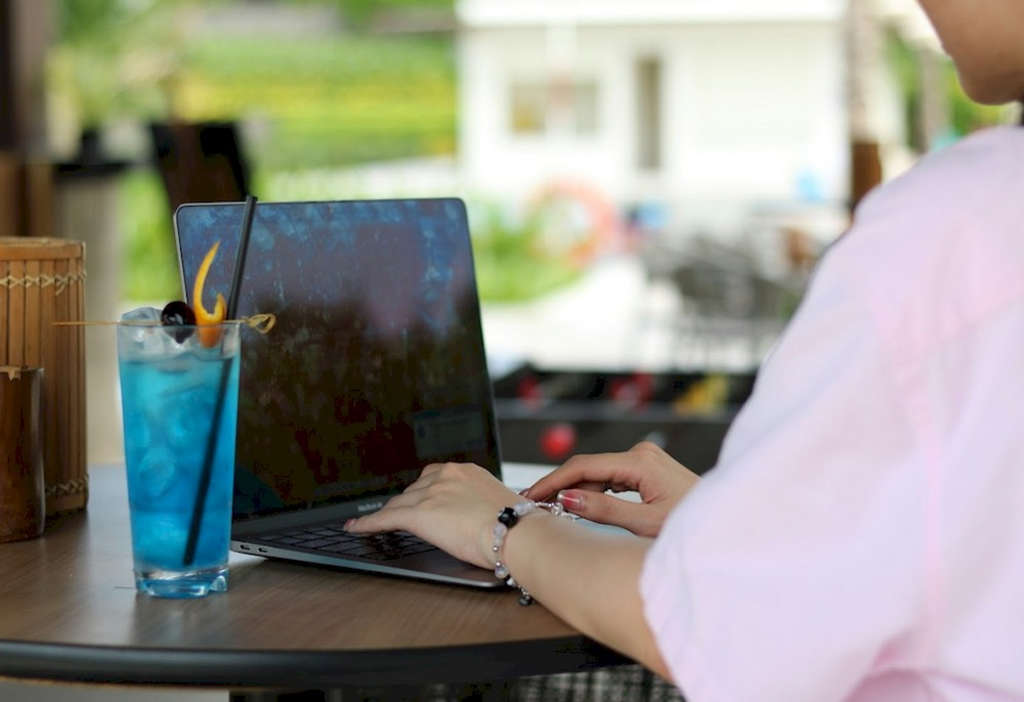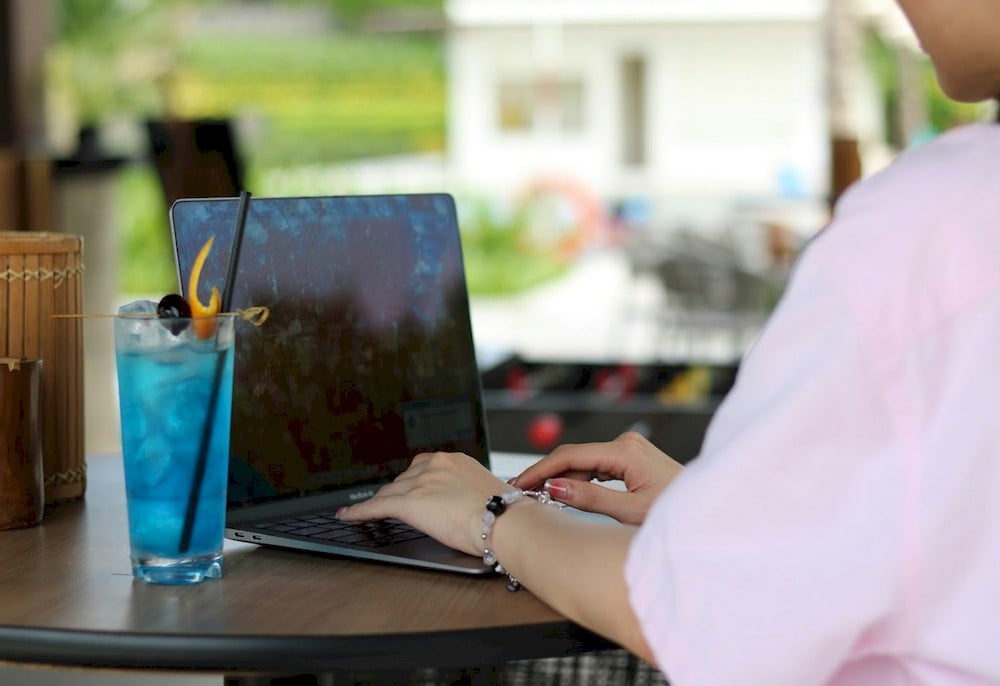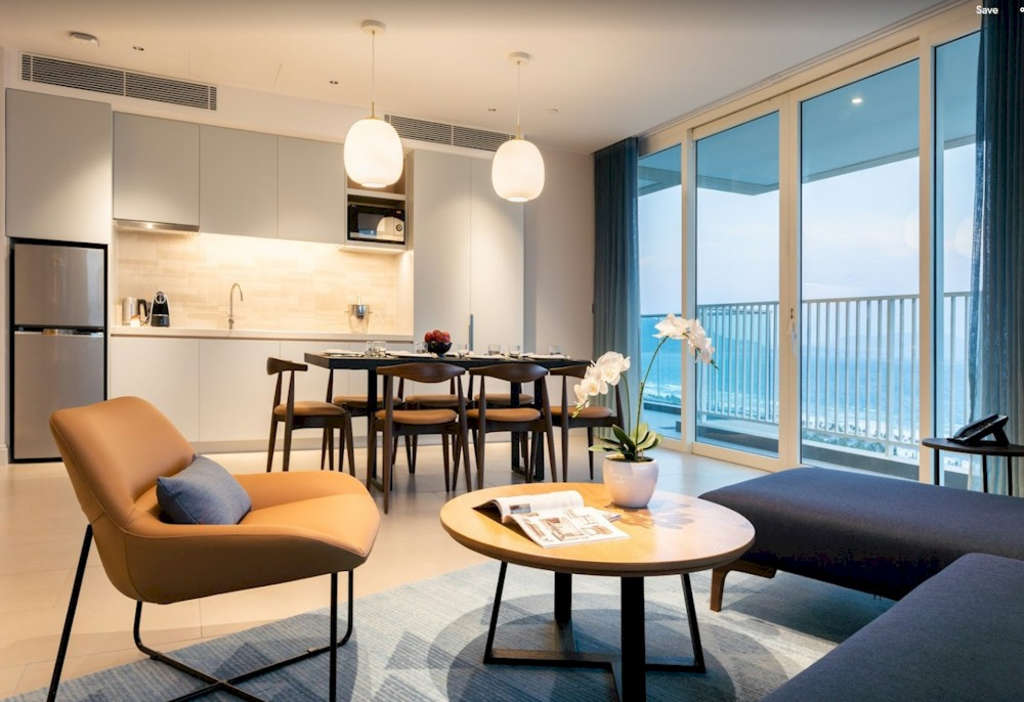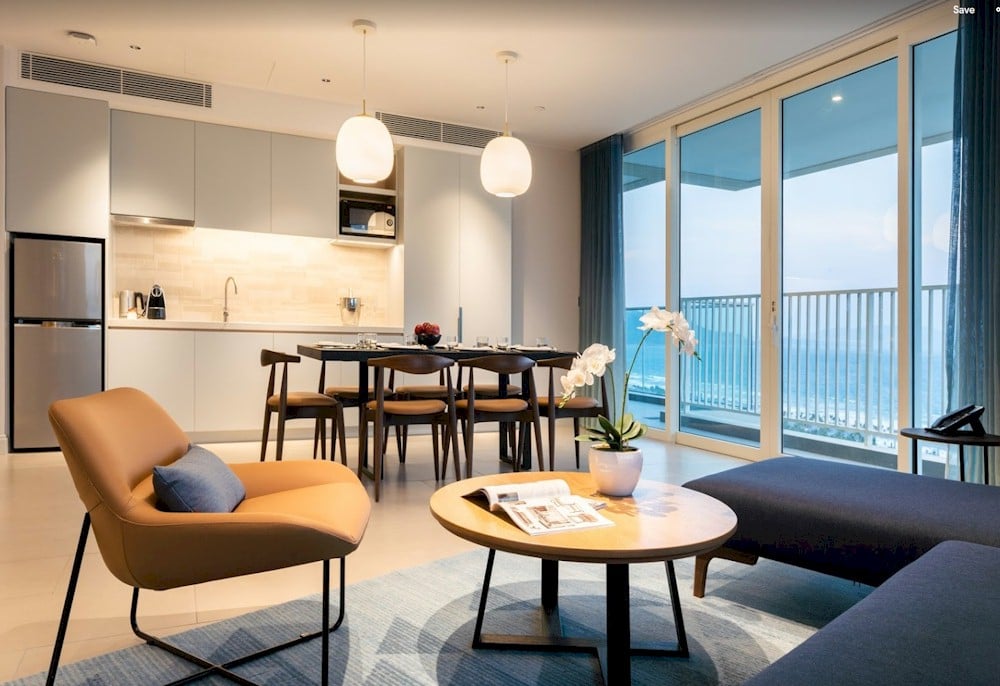Hotel Design Offers Opportunities to Attract Remote Workers
This article was co-authored by Lorenz Lennaerts, Design Director and Co-Founder, Pure-Design Studio

The hotel industry worldwide is changing how it approaches design amid growing demand from remote workers.
Hotels and resorts are able to offer this relatively new guest demographic an attractive mix of privacy, spaciousness, comfort and support, while providing environments free from the typical distractions of home and office.
As a design expert and an operational expert in Vietnam, we have seen an unmistakable trend toward remote work in hotels. Today's digital workers crave expansive living spaces, the freedom to work in varied settings (even outdoors), and greater proximity to nature, including lush gardens and beautiful beaches.
Some remote workers prefer city hotels for their convenience or proximity, while others travel to resorts far from the "hustle and bustle" as a way to boost their productivity. The common factor they seek out is a well-equipped space that enables them to work efficiently and effectively.
Coffee shops such as Starbucks offer a useful example of what these workers are looking for-and can serve as a jumping-off point for hotels and resorts seeking to capture some of this market. Beyond keeping people caffeinated and nourished, coffee shops are also renowned as popular workspaces. They epitomize convenience, featuring a quiet and comfortable setting and dependable Wi-Fi, allowing workers to stay powered up and connected.
Hotels and resorts can take a cue from this model, but they can also go significantly further in catering to the dynamic needs of these workers. Hotels almost always offer much greater scale, with multiple F&B outlets in addition to private guest rooms and amenities such as spas, gyms, swimming pools and other common areas. Professional concierge services can also assist with tasks, adding even more convenience.
Location, Location, Location
City hotels, while bustling hubs of activity, can leave workers feeling cramped in their guest rooms. Loud noises or other potential distractions sometimes make it more difficult to concentrate. In Vietnam, we increasingly meet remote workers who say they prefer the solace of a spacious beachfront resort to maximize their output. Many say their work is enhanced when they escape the stress and pressures of city life.
In a resort setting, the essentials for remote work are clear. Reliable, extensive Wi-Fi connectivity is a given, ensuring seamless communication and productivity throughout the property. Just as important, these workers require ample space to unwind, stroll, or simply work with their laptops anywhere they choose.
Looking forward, resorts that want to accommodate remote workers should consider creating "high-productivity zones" set apart from the areas that typically host families or groups of travelers, along with other spaces or activities that could present distractions. These areas can be designed to cater solely to such workers.
At Alma resort in Cam Ranh, Vietnam, we viewed these as practical changes that didn't require wholesale reinvention at all. Architects or hotel operators elsewhere could similarly implement these ideas without substantial investment. At Alma, for instance, we avoid putting remote workers in pool villas, close to families and other groups, instead offering them quieter, more insulated suites where disturbances are virtually nonexistent.
We ensure that no large groups occupy adjacent units, further minimizing potential disruptions. The target audience for these workspaces is typically solo travelers. Thus, we dedicate a section of a floor to one-bedroom suites, creating an oasis of productivity amidst the luxurious backdrop of our beach resort.
Pre-Arrival Checklist
Another key aspect to successfully hosting long-stay remote workers is the implementation of a pre-arrival checklist. This includes items that guests want in place immediately when they check in, so they can get straight to work. There is nothing more frustrating for someone who wants to be productive than to first need to square away their basic needs.
The pre-arrival checklist includes screening for the guest's dietary requirements. The hotel or resort is then able to stock the refrigerator with basic items, such as milk, juice, and water. What kind of fruit do they want resupplied daily? Do they prefer coffee or tea? In the evening, they might unwind with wine or a cocktail. What do they prefer? We encourage our team to view the resort as a "house," helping such guests experience a seamless transition so they are able to begin their work as soon as they check-in.
The checklist also includes things like: Do they want additional clothes hangers in the closets? This is something long-stay guests often require. Further, what sort of pillow do they prefer? Which office supplies are necessary for their work? And how often do they want housekeeping?
Long-stay remote workers should be treated as VIPs. The same staff that coordinates the pre-arrival checklist should welcome them, provide a hotel tour, and introduce relevant outlet managers and housekeeping staff. The point person should also provide a list of names and contact details, with photos of relevant hotel staff, and explain the layout of the resort and a map. Long-stay guests can even be invited to the hotel's daily briefing, so they can explain their intention for the stay in order to create a clear understanding with the staff.
In-Room Amenities
For many remote workers, privacy and silence are paramount. Hotel services for these guests should generally be offered almost exclusively "on call," including room cleaning, housekeeping, replenishing the minibar, turndown service in the evenings, and laundry. Laundry is a key service for remote workers, since it allows them to focus on their productivity. Doing one's own laundry is time-consuming and detracts from precious time needed for their work.
Inside guest rooms, remote workers want an easy-to-use, high-quality coffee or espresso machine. Many corporate hotels already provide comfortable desk chairs, a stark change from 25 years ago, when rooms only offered a simple straight-back chair. Now, there is often an office chair with adjustable armrest and settings, and wheels for easy mobility. Small changes like this, which enhance comfort, make an enormous difference to someone spending eight to 10 hours a day working remotely in a hotel room.
These guests also increasingly require access to office supplies, including a stapler, paperclips, highlighters, scissors, ruler, pencil sharpener and so on. Hotels could make such items easily available through a dedicated room-service menu, or simply provide them in the guest-room desk. Straightforward and reliable printer services are also frequently in demand. Guests at Alma sometimes like to print a report and walk to the beach to read it there, where they can look out at the sea and find inspiration.
Beyond access to basic office supplies, these travelers also want to feel "at home." Simple design changes could include adopting warmer color palettes. People don't want to feel like they're staying in an uninspired space, so hoteliers might consider, for instance, providing bedspreads in hues of gray, blue or yellow. Equally important is the convenience of a kitchenette and a large refrigerator, eliminating the need to venture outside for meals. Quality room service that offers fresh, healthy food is also important. Housekeeping services should be respectful of guests' need for privacy, while on-site laundry facilities offer added convenience.
Broader Hotel and Resort Offerings
Escaping the disturbances of home allow remote workers to tap into greater productivity when they're at hotels and resorts. Some workers leave home in the morning and return in the evening, only using a hotel's common areas or restaurants for work during the day. Others might say goodbye to their family on Monday morning and return home at the end of the week after completing an important project.
But these guests don't want to feel confined to their guest room during their stay. Some might want to do yoga or walk around the neighborhood to boost their creativity. Exercise offerings in a hotel are key for these workers. Perhaps special fitness or wellness activities could be tailor-made to help get their blood flowing. Guided meditation, sound healing, and 30-minute cardiovascular workouts are all such possibilities.
Traditional offices don't generally offer a swimming pool, they don't have a gym, they maybe don't even have a coffee shop. Most don't provide breakfast. Remote workers appreciate having these conveniences at their disposal so they don't need to leave the building.
The F&B Opportunity
One unmistakable trend in hotel F&B is the rise of 24-hour dining. Not only for room service but also in restaurants. This appeals both to daytime remote workers and those staying as in-house guests. The type of food on the menu is also increasingly important. There is growing demand among workers for healthier food options.
Further to the point about long-stay remote workers being treated as VIPs, they could also be introduced to the hotel's chefs or F&B director, so they can explain how they prefer their food to be prepared and share their expectations.
People seeking top levels of productivity and mental clarity often try to avoid sugar. They want food that gives them a great deal of energy but doesn't make them crash or feel fatigued. So special menus offering healthy, nutritious food are important. These could include fresh-pressed juices, leafy green salads, fresh fish and so on.
About Lorenz Lennaerts
Mr. Lennaerts is the design director and co-founder of Pure-Design Studio in Ho Chi Minh City, Vietnam. He has more than 14 years of extensive experience in the real estate and hospitality development industries and his focus is on design. Over the years, his keen sense of style and eye for detail have allowed the design ambitions of himself and his team of more than 30 architects and designers to contribute to the changing property landscape of Vietnam. Mr. Lennaerts and his team have collaborated with well-known multinational and local developers, as well as architects and construction companies (such as VinaCapital, Keppel Land, VietCapital, Tuan Le, Fusion Group, AW2, DCA, Aurecon and others) to deliver exceptional turn-key projects. His key responsibilities include managing all design aspects of these projects from the design brief through to conceptualization, and design development. Pure-Design Studio is passionate about design and strive for excellence in every project. Their goal is to create aesthetically pleasing and functional spaces that enhance the lives of people who interact with them.
Reprinted from the Hotel Business Review with permission from http://www.hotelexecutive.com/.

